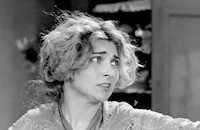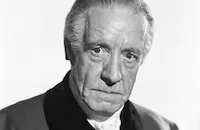Their Own Desire

Brief Synopsis
Cast & Crew
E. Mason Hopper
Norma Shearer
Belle Bennett
Lewis Stone
Robert Montgomery
Helene Millard
Film Details
Technical Specs

Synopsis
When she discovers that her father is having a clandestine affair with another woman, Lally takes her mother, Harriet, to a resort, meets there a young man named Jack, and falls in love with him. After promising to marry him, she discovers that his mother is her father's mistress; and they decide to part. On a farewell boat ride they are caught in a storm, and the following morning they are reported missing. In their frantic search for them, Marlett and Beth (Lally's father and Jack's mother) realize the serious consequences of their affair, and reunion with their children brings about a return to their respective spouses.

Director

E. Mason Hopper
Cast

Norma Shearer

Belle Bennett

Lewis Stone

Robert Montgomery
Helene Millard

Cecil Cunningham
Henry Hebert
Mary Doran
June Nash
Crew
Adrian
J. K. Brock
Fred Fisher
Fred Fisher
James Grant Forbes
James Grant Forbes
Cedric Gibbons
Frances Marion
Reggie Montgomery
Harry Reynolds
Douglas Shearer
George Ward

Film Details
Technical Specs

Award Nominations
Best Actress
Articles
Their Own Desire
Thursday, Aug. 12 8:45 am ET
A tangled melodrama with an engaging performance from Norma Shearer as its centerpiece, Their Own Desire (1929) is also notable for its action packed screenplay (by Frances Marion) that includes an apparent suicide, a climax involving Lally and Jack lost in a boat during a storm on Lake Michigan and numerous complications aimed at keeping the lovers apart.
Though hyperbolic by today's low-key acting standards, Shearer's charisma carried this drama through its many shifts of emotion. Especially convincing is Shearer's transformation from the perky, fun-loving party girl, to the love-sick woman trying to distance herself from the man she loves out of loyalty to her mother.
Shearer received an Academy Award® nomination for her role as Lally, and she did win the Best Actress Oscar® that year, though not for Their Own Desire. Instead, Shearer -- who was nominated five times for Best Actress Oscars® over the course of her career -- won her statuette for The Divorcee (1930).
As a child Shearer moved in 1920 from her native Montreal to Hollywood with her mother and sister, who would later marry director Howard Hawks. In 1927 Shearer struck her own power deal with her marriage to MGM production chief Irving Thalberg. Some claimed that this well-placed marriage was the key to her success, since Shearer was soon able to cherry pick the best roles in the MGM repertoire. But in many ways Shearer merely represented the polished, ideal MGM star in films like Marie Antoinette (1938) and The Women (1939), demonstrating an admirable ability to shift gears and never allow herself to be typecast. And this "First Lady of the Screen" also made her fair share of bad career choices. After Thalberg's death in 1936 she turned down starring roles in Gone With the Wind (1939) and Mrs. Miniver (1942).
If Shearer was the First Lady of the thespian ranks, screenwriter Frances Marion was the First Lady of Hollywood Letters. Her script work on Their Own Desire (with dialogue provided by playwright James Forbes) was just one of the 150 scenarios, stories and adaptations she worked on over her prolific, highly profitable career.
Shearer's co-star in Their Own Desire was the well-born Robert Montgomery, the product of prestigious prep schools who ultimately had to find menial work when his wealthy father died penniless. After a successful stint in Hollywood playing the reliably handsome, happy-go-lucky romantic lead to such screen legends as Shearer, Greta Garbo, Joan Crawford, and Myrna Loy, Montgomery went on to distinguish himself in other ways. He served three terms as president of the Screen Actor's Guild, earned a Bronze Star for his role in the D-Day invasion and affirmed his conservative political leanings when he testified in 1947 as a friendly witness at Washington's HUAC trials, meant to root "Communists" out of Hollywood's ranks.
Montgomery made a name for himself as a director as well and in 1945 filled in for a bedridden John Ford on the set of They Were Expendable (1945). He also contributed some innovative point-of-view camerawork to his adaptation of Raymond Chandler's novel, Lady in the Lake, 1947) with himself in the lead as detective Philip Marlowe. In 1955 Montgomery won a Tony for directing the Broadway production of "The Desperate Hours" and went on to father television actress (Bewitched) Elizabeth Montgomery.
Director: E. Mason Hopper
Producer: Irving Thalberg
Screenplay: Frances Marion with dialogue by James Forbes from a novel by Sarita Fuller
Cinematography: William H. Daniels
Production Design: Cedric Gibbons
Music: Fred Fisher, Reggie Montgomery, George Ward
Cast: Norma Shearer (Lucia "Lally" Marlett), Belle Bennett (Harriet Marlett), Lewis Stone (Henry "Hal" Marlett), Robert Montgomery (John Douglas/"Jack" Cheever), Helene Millard (Beth Cheever), Cecil Cunningham (Aunt Caroline Elrick), Henry Hebert (Uncle Nate Elrick), Mary Doran (Suzanne Elrick), June Nash (Mildred Elrick).
BW-65m.
by Felicia Feaster

Their Own Desire Thursday, Aug. 12 8:45 am ET
Quotes
Trivia
Notes
As part of the third Academy Awards, Norma Shearer received a nomination for her performance in this film and The Divorcee. She won the award, but at the ceremony, only her work in The Divorcee was acknowledged.














